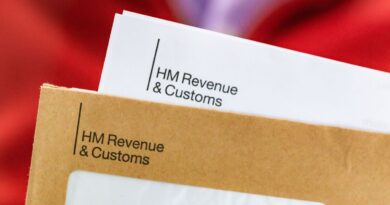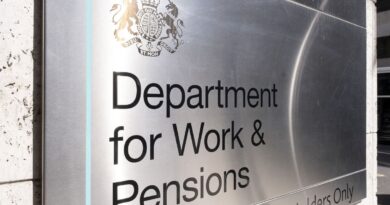Martin Lewis settles debate on paying by cash and ‘legal tender’ rule | Personal Finance | Finance
Martin Lewis has settled the debate on your “legal tender” rights to pay with cash. The Money Saving Expert founder set the record straight on the meaning of the commonly repeated phrase as he addressed what it means and whether retailers must legally accept cash payments.
Martin launched a poll on his X account on Tuesday which asked: “Today’s Poll: Should shops & restaurants be made by LAW to accept cash payments? “With the rise of card & internet purchases, in urban areas especially, some places are ‘card only’ excluding cash shoppers.” There, 59% of respondents said that shops should be made to accept cash, while 19.9% said it should be left up to retailers to decide.
As society moves increasingly towards a cashless future, many people no longer routinely carry cash. But a passionate group of cash advocates are opposed to ending the use of physical money.
Martin then weighed in on the debate about “legal tender” which is a commonly repeated phrase when it comes to your rights to pay in cash.
Settling the debate, Martin added: “Some saying ‘they must already take cash by law, it’s legal tender’. That’s a common confusion.
“Legal tender only applies to what can’t be refused in settlement of a Court debt.”
This is backed up by Full Fact, which has previously made clear that shops are completely entitled to turn down cash payments of any sum – there’s no requirement to accept any money.
Full Fact states: “It’s not illegal for shops or businesses to refuse to accept cash. They can also refuse to accept card payments. And while cash is ‘legal tender’, this has a narrow definition that doesn’t mean businesses must accept it.”
The Bank of England has clarified the rule, stating: “Legal tender has a narrow technical meaning which has no use in everyday life. It means that if you offer to fully pay off a debt to someone in legal tender, they can’t sue you for failing to repay.”
Last week, Martin said that credit cards offer the best protection and the cheapest way to pay.
Following his advice Martin hit back at the ‘bizarre nasty abuse’ he received as he stressed that he is not anti-cash.
He posted on X on Monday: “I’m getting some bizarre nasty abuse from some people who seem to think I’m anti-cash (likely from misleading clickbait headlines – which of course are NOWT to do with me). I’m not. I’ve long been supported the campaign for access to cash both publicly and adding support to official reports on it.
“Of course, from a consumer finance perspective spending on a credit card (as long as its repaid IN FULL each month) is more lucrative (eg due to 1% cashback) and better protected (due to Section 75 laws which make the card company jointly liable with the retailer). So if asked what the primary way to spend would be, that is my answer.
“Yet the more plastic becomes dominant, and digital takes over, the more important it is to ensure access to cash (both getting it and using it to spend) is protected, so that choice and flexibility is there for all. And I have long been vocally supportive of that.
“It is especially important for older people who don’t use cards, and those who don’t want to be digital.
“Some people seem to think I’ve changed my stance. I haven’t I’ve been saying both these things for (likely) decades!”





